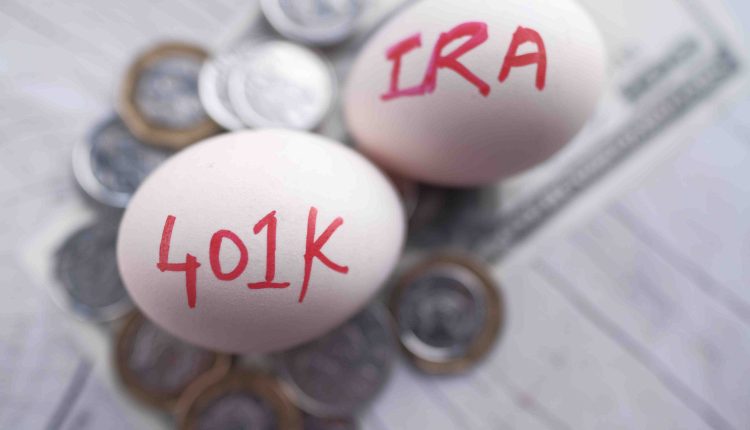Can you avoid taxes on 401k?
When can I take out my 401k without paying taxes?
Contents
After you turn 59, you can withdraw your money without having to pay an early withdrawal penalty. You can choose traditional or Roth 401 (k) plan. The traditional 401 (k) offers savings with deferred tax, but you will still have to pay tax when you withdraw money.
Do I pay 401k withdrawal tax after age 60? The IRS defines early retirement as taking cash from your retirement plan before you turn 59. In most cases, you will have to pay an additional 10 percent tax on early withdrawals unless you qualify for the exception. This is above your normal tax rate.
At what age is 401k withdrawal tax free?
The Tax Administration allows penalty-free payments from retirement accounts after 59 ½ years and requires withdrawals after age 72 (these are called Demanding Minimum Distributions or RMDs).
How can I avoid paying taxes on my 401k withdrawal?
Here’s how to minimize 401 (k) and IRA retirement taxes:
- Avoid the penalty of premature withdrawal.
- Transfer your 401 (k) without tax deduction.
- Remember the required minimum distributions.
- Avoid two distributions in the same year.
- Start making payments before you have to.
- Donate your IRA distribution to charity.
Do I have to pay taxes on my 401k after age 65?
Withholding tax of 401k after 65 varies Whatever you deduct from your 401k account is taxable income, just as a regular salary would be; when you contributed 401k, your contributions were pre-tax, so you are taxed on payments.
Do you pay taxes on 401k after age 65?
Withholding tax of 401k after 65 varies Whatever you deduct from your 401k account is taxable income, just as a regular salary would be; when you contributed 401k, your contributions were pre-tax, so you are taxed on payments.
How can I avoid paying taxes on my 401k withdrawal?
Here’s how to minimize 401 (k) and IRA retirement taxes:
- Avoid the penalty of premature withdrawal.
- Transfer your 401 (k) without tax deduction.
- Remember the required minimum distributions.
- Avoid two distributions in the same year.
- Start making payments before you have to.
- Donate your IRA distribution to charity.
How can I withdraw my 401k without paying taxes?
If you have $ 1,000 to $ 5,000 or more when you leave work, you can transfer funds to a new retirement plan without paying taxes. Other options you can use to avoid paying taxes include taking a 401 (k) loan instead of a 401 (k) withdrawal, donating to charity, or making a Roth contribution.
When can I withdraw 401k tax free?
Rule 55 is an IRS provision that allows you to withdraw funds from your 401 (k) or 403 (b) without penalty at age 55 or older.
Do you still have to pay taxes on 401k withdrawal?
Your 401 (k) withdrawals are taxed as income. There is no special 401 (k) withdrawal tax. Any money you withdraw from your 401 (k) is considered income and will be taxed as such, along with other sources of taxable income you may receive. … You can calculate how much you will owe for income tax to make it easier to plan ahead.
How much will I be taxed on a 401k withdrawal?
If you withdraw funds earlier from 401 (k), you will be charged a 10% penalty tax plus your income tax rate on the amount you withdraw. In short, if you withdraw your pension funds earlier, the money will be treated as income.
Are all 401k withdrawals taxed?
When you withdraw funds from your 401 (k) – or “take over distribution”, in IRS jargon – you begin to enjoy the income from this retirement support and face its tax consequences. For most people, and with a majority of 401 (k) s, distributions are taxed as ordinary income.
How much tax will I pay on a 401k withdrawal? If you withdraw money from your 401 (k) account before 59 1/2 years, you will have to pay a 10% early withdrawal penalty, plus income tax, on distribution. For someone in the 24% tax bracket, an early $ 401 (k) withdrawal of $ 5,000 will cost $ 1,700 in taxes and fines.
Can you withdraw from 401k without being taxed?
Withdrawals of contributions and earnings are not taxed as long as the IRS considers the distribution to be eligible: The account has been held for five years or more and the distribution is: Due to disability or death. On or after 59½
How can I lower my taxable income?
How to reduce taxable income
- Contribute significant amounts to retirement savings plans.
- Participate in employer-sponsored savings accounts for child care and health care.
- Pay attention to tax breaks such as child tax credit and retirement savings contribution credit.
- Investments in the harvest with a loss of taxes.

Comments are closed.